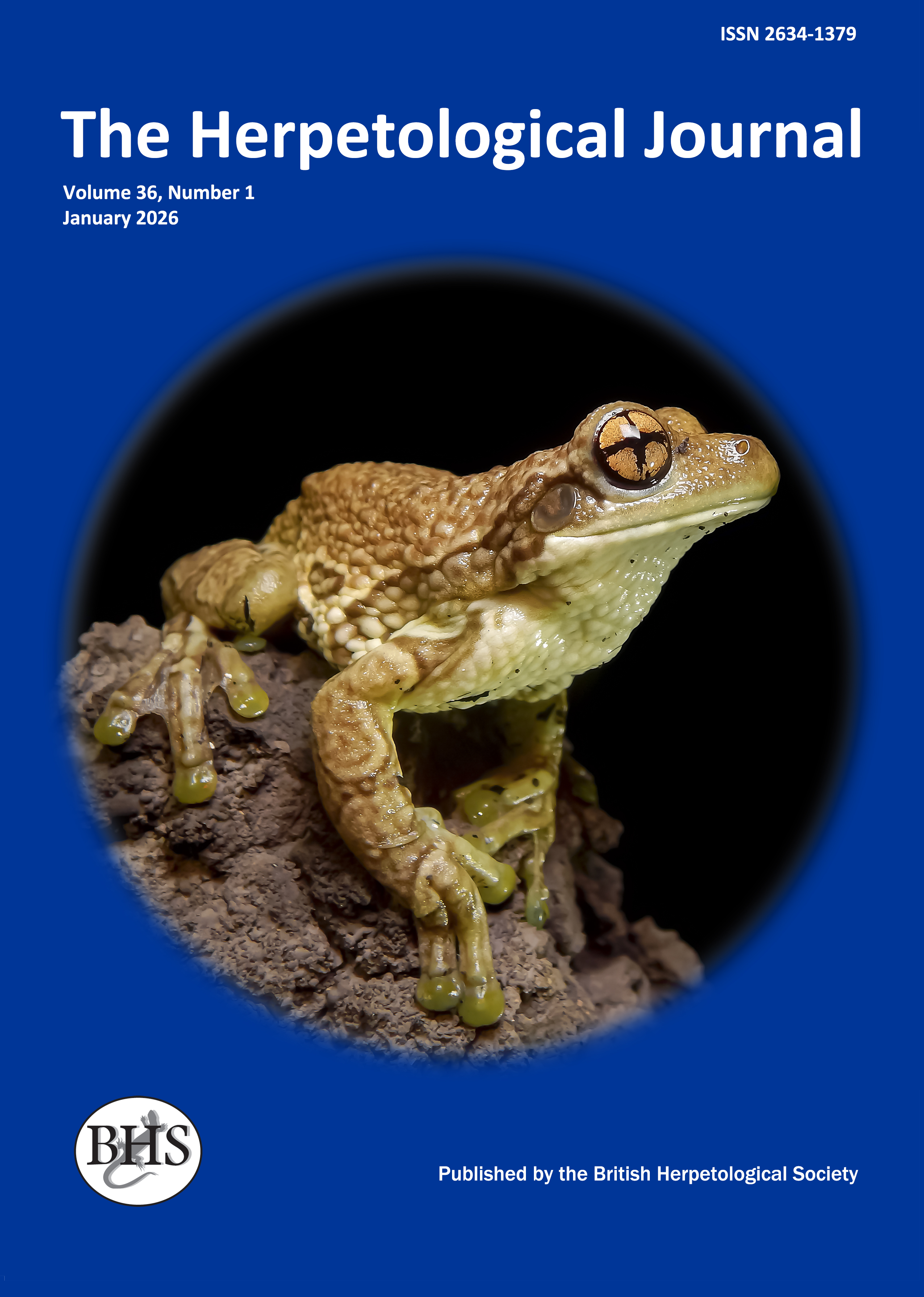
The Herpetological Journal
The Herpetological Journal is the Society's prestigious quarterly scientific journal. Articles are listed in Biological Abstracts, Current Awareness in Biological Sciences,Current Contents, Science Citation Index, and Zoological Record.
ISSN 0268-0130
2023 Impact Factor for the Herpetological Journal is 1.1, with the Journal sitting just below Quartile 2 in Zoology, at percentile 46.9
pdf 02. Selection of tadpole deposition sites by male Trinidadian stream frogs, Mannophryne trinitatis (Dendrobatidae) an example of antipredator behaviour
1958 downloads
Open Access
pp.91-100
Authors: J. R. Downie, S. R. Livingstone And J. R. Cormack
Abstract: Trinidad's only dendrobatid frog, Mannophryne (=Colostethus) trinitatis, lives by the small streams draining the slopes of the Northern Range mountains and at Tamana Hill in the Central Range. Adults are often very abundant, but tadpoles are found patchily in the streams. In the absence of two potential predators - the fish Rivulus hartii and shrimps of the genus Macrobrachium - tadpoles are abundant in pools. Where the predators are present, tadpoles are uncommon or absent. Tadpoles may also be found in small, isolated bodies of water at some distance from streams. Males carrying tadpoles retained them for 3-4 days, in the absence of suitable pools. When presented with a choice of pools, males preferred to deposit their tadpoles in pools lacking predators. There were differences in behaviour between males from the northern and southern slopes of the Northern Range. For example, north coast males deposited tadpoles in pools containing other conspecific tadpoles in preference to empty pools, whereas males from southern slopes made the opposite choice. When presented only with pools containing predators (i.e. shrimps or fish), north coast males shed their tadpoles in damp leaf litter rather than in the pools, while males from the southern slopes deposited tadpoles in pools with shrimps - predators uncommon in the southern slopes streams. The results indicate that male frogs spend some time searching for predator-free pools in which to deposit their tadpoles. These results are discussed in the context of other examples of anti-predator reproductive behaviour in frogs, and of life history evolution under the influence of different selective pressures.
Keywords: Dendrobatids, Trinidad, tadpole-deposition, predator-avoidance, Rivulus

